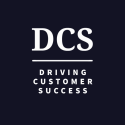3 Customer Success Lessons For B2B SaaS Companies In The Startup Phase

With the SaaS market approaching the $150 billion mark as of 2021, according to Statista (paywall), it’s not hard to see the appeal for both vendors and customers. One key advantage that SaaS solutions tend to offer enterprise customers is their relative ease of use, including a far easier setup process than what is typical for on-premises enterprise software.
But, by making it easy to switch vendors, that ease of setup could pose a serious threat to B2B SaaS vendors that fail to invest adequately in customer relationships. Even today, far too many companies fall into that category, especially because it is so common for B2B SaaS startups to focus on short-term profitability at the expense of long-term success. Even among more mature enterprises, I believe the SaaS world needs to move toward a mindset that fully internalizes the importance of investing in customer relationships. Developing that kind of mindset requires these companies to incorporate some key lessons about customer relationships, the SaaS business model, and where the two intersect.
The SaaS model changes (almost) everything.
It’s no secret that the cloud technology that powers the SaaS industry makes it far easier to switch vendors than it was in the past. B2B SaaS vendors should put their money where their collective mouth is when it comes to building loyalty, trust, and a sense of value among their customers.
Simply put, our subscription-based business model makes customer churn a constant risk. Accordingly, our approach to everything from sales and marketing to customer support and customer success should be fundamentally different. That difference should be both conceptual and practical, with very concrete implications for the way we relate to our customers. As HubSpot CTO Dharmesh Shah put it: “When you’re trying to make an important decision, and you’re sort of divided on the issue, ask yourself: If the customer were here, what would she say? You don’t actually have to do everything she says, but it’s useful to at least factor in her point of view.”
Furthermore, the way we SaaS companies approach customer relationships should reflect the reality that much of our sales process takes place digitally, remotely, and (in many cases) automatically — especially since the start of the Covid-19 outbreak. Keep in mind: Many SaaS businesses enable customers to sign up for our services without ever speaking to any of our teams. So, if we want to lay the groundwork for lasting customer relationships, we should make a point of investing sufficient time and resources in reaching out to enterprise customers in a way that builds trust and personal connections.
Long-term SaaS success requires qualitative thinking.
There are good reasons that SaaS companies tend to approach problems and evaluate their achievements quantitatively. When startups are trying to gauge their chances of success, what works well and what doesn’t, quantitative data can help them answer their most pressing questions. And, given how tough competition between SaaS companies can be, hard data can offer us the kind of pragmatic thinking that we need in order to realize our potential.
But when it comes to other aspects of the business, such as brand awareness and customer relationships, quantitative thinking isn’t enough. When you invest in building those relationships, the ROI is not always immediately apparent or measurable. By also viewing customer relationships qualitatively, we can start to see their value — a necessity for any SaaS company hoping to make it past the startup phase.
Investing in building trusting relationships entails being attentive to the customer, asking questions, listening to them, and showing empathy. That’s why I always recommend that employees listen for 80% of the time that they spend communicating with customers and spend only 20% of that time talking.
In the long run, customers aren’t the only ones we’re competing for.
While SaaS companies operate in a highly competitive field, that competitiveness is not only about acquiring the best customers. Many of us rely on corporate partners to help us build our customer base in the long run — which forces us to compete for partners just like we compete for customers. Meanwhile, competition for highly skilled employees also tends to be high throughout the SaaS field, especially in cybersecurity. Given the industrywide skills gap — a shortage of 2.7 million cybersecurity professionals, according to the 2021 (ISC)2 Cybersecurity Workforce Study — I believe our ability to offer an excellent product with top-notch service depends on the extent to which we build both trust with and enthusiasm from our employees.
When you’re working on building relationships with partners or employees, many of your goals are the same ones that should motivate you to build relationships with customers. You want them to feel that they can trust you and that you offer a product that’s worth their time and resources. To do that, you need to show them, genuinely, that you’re eager to help them face their key challenges, meet their goals, and generally thrive.
Building that sense of loyalty, comfort, and trust in a work-from-home or hybrid work environment takes extra planning and extra care. But, as I can tell you from my experience as Cybersixgill’s CMO during the pandemic, it’s well worth it. For employees, adapting to this new reality could be a matter of setting remote team meetings to check in and build a sense of cooperation. For partners, it could involve organizing thought-provoking virtual events to share useful insights. Either way, today’s “new normal” work environment makes it especially important to take the time to reach out and connect.
As we approach our third year of this “new normal,” companies are continuing to adapt — and working hard at it. Although many of us had a head start in building customer relationships virtually, we also face a dynamic business environment that pushes us to keep learning and improving. By internalizing key lessons about our field — and especially by prioritizing customer relationships — we can develop the kind of forward-looking, customer-focused mindset we need in order to steer our companies toward long-term success.
Meira Primes, CMO Cybersixgill
Original post on Forbes.

Hakan Ozturk
Founder, theCScafe.com, #1 Weekly Customer Success Newsletter
Hakan Ozturk is a Paris-based Customer Success leader with over 15 years of experience in the computer software industry. Passionate about driving growth and delivering value to strategic customers, Hakan has established himself as a trusted industry expert. As the Founder of The Customer Success Café Newsletter and TopCSjobs.com, Hakan provides valuable industry insights and daily-updated job opportunities worldwide in the field of Customer Success. Connect with Hakan to boost your career in CS and your company’s potential for massive growth.

Leave a Reply